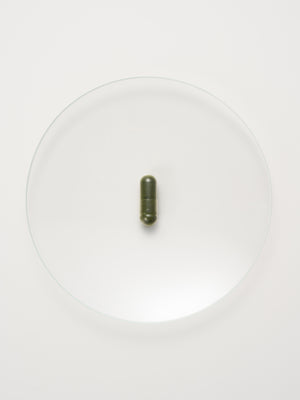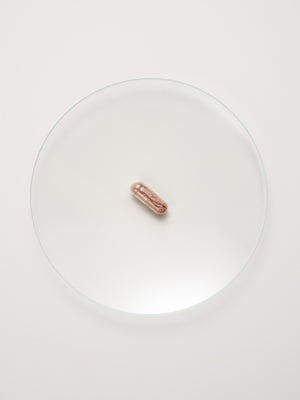
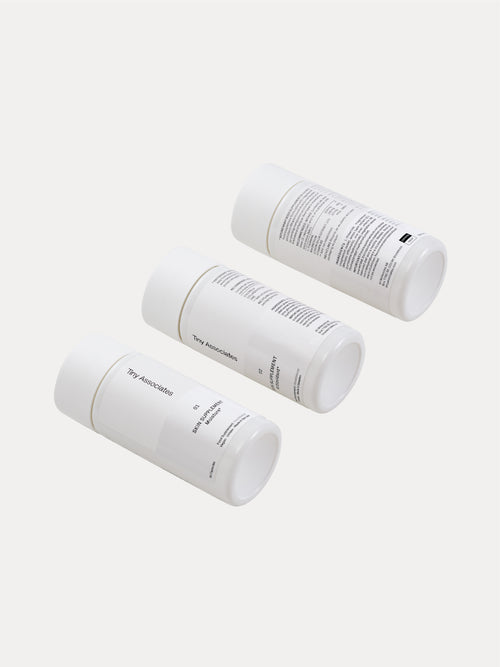
Evidence-based products through bioavailability- and quality-testing.
The science of supplements is complicated. In fact, scientists still struggle to understand how they work. In contrast to topically applied skincare, the effects of skincare supplements and their active compounds are complicated by the fact that they must go through the gastrointestinal tract, cross the intestinal barrier, reach blood circulation and then be distributed to the target tissue, the skin.
Two things stand out as cornerstones in the science of supplements: the bioavailability and quality / amount of active compound(s) of final products.
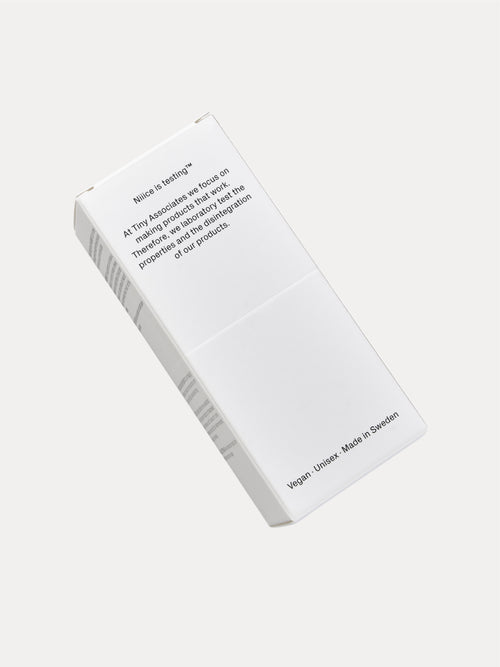
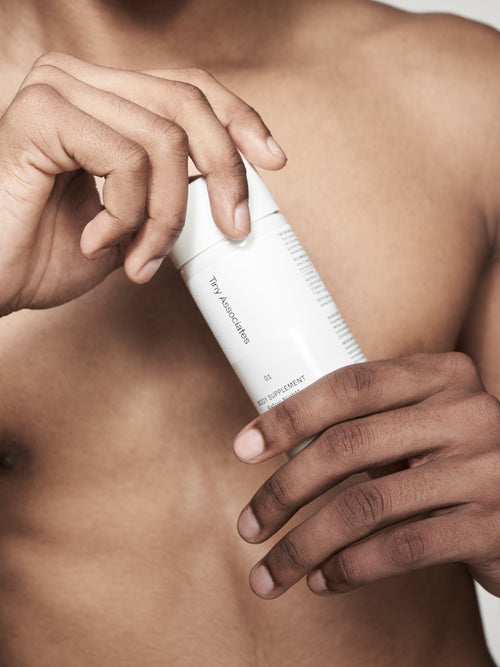
What does bioavailability mean, and why is it important?
Bioavailability is a measurement of how quickly and how extensively an ingredient (an active compound) can be absorbed and become available to the intended body part.
Bioavailability is complex, and directly affects the effectiveness of anything you consume orally, including supplements. When you take a supplement, active compound(s) enter your digestive system and are then absorbed into your bloodstream to be delivered to specific cells around your body for storage or use. However, the process is imperfect, resulting in many active compounds either being destroyed through the digestive process or failing to reach the proper cells.
In essence, if a product is bioavailable, it can be absorbed by the body and fulfill its intended purpose. Conversely, a product that is not bioavailable will not be able to accomplish what its makers claim. This could be compared to topically applied skincare, in which only molecules weighing around/less than 500 daltons can penetrate the skin and perform their intended effect.
What does amount of active compound(s) mean, and why is it important?
Active compounds are defined as substances in food or food supplements, other than those needed to meet basic human nutritional needs, which are responsible for changes in health status. So, for food supplements to have a positive health-related effect, they need to contain a certain amount of said active compound(s) in each portion of the final product.
Why is it important to test final products for bioavailability and amount of active compound(s)?
Ingredients alone do not guarantee the effectiveness of final products. It does not matter if there is evidence in peer-reviewed studies regarding the effectiveness of specific ingredients, as many other factors influence the effectiveness of the final product. One must take formulation into account, as well as reactivity of other compounds and the method of delivery. If the final products are not tested for bioavailability and amount of active compound(s), how can anyone claim the product is truly effective?
Acknowledgements
Tiny Associates acknowledges that the above is of course a simplification. Bioavailability is a complex process involving several different stages, starting with liberation and absorption into the body, then processing through the body via distribution, metabolization and finally elimination. Furthermore, many factors influence the absorption of these compounds, ranging from solubility, molecular transformations and interaction with other dietary ingredients, to interaction with the gut microbiota, metabolism and other cellular transporters.
All of these factors affect bioavailability. A disintegration test is considered to be the best practice for determining bioavailability, and for this reason, Tiny Associates’s supplements are tested for disintegration.
Related products

